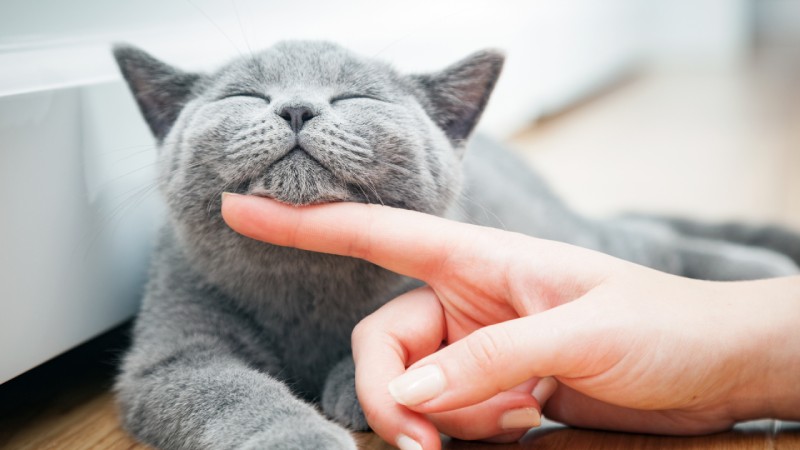RECOGNIZING ARTHRITIS IN YOUR MADISON PET: KEEPING THEM HAPPY AND HEALTHY

Does your beloved pet in Madison seem a little less playful lately? Perhaps they hesitate to jump on the couch or struggle to climb the stairs. Maybe their morning greetings are met with a slower rise and a wince instead of their usual tail wags and zoomies. These changes could be signs of arthritis, a common condition in older pets. Arthritis, the inflammation and degeneration of joints, can cause significant discomfort and limit your pet’s mobility. The good news is that early detection and intervention are key to managing this condition effectively. By recognizing the telltale signs of pet arthritis, you can become a strong advocate for your pet’s health and happiness.
Stiffness and Reduced Mobility – Is Your Pet Slowing Down?
Stiffness, especially after rest or prolonged inactivity, is a telltale sign of pet arthritis. You might notice your furry friend taking longer to rise from their slumber in the morning, appearing hesitant or sluggish during their initial movements. These initial moments of stiffness often improve with light activity, but the discomfort can return after periods of rest. Difficulty getting up from a lying down position can also be a red flag. Activities like climbing stairs or jumping on furniture, once effortless feats, may now be met with resistance or require extra effort. This reluctance can be due to the pain caused by inflamed joints.
The culprit behind this stiffness is the gradual breakdown of cartilage within the joints. Cartilage acts as a smooth, protective cushion between bones, allowing for pain-free movement. In arthritic pets, this cartilage wears down, causing friction and inflammation in the joint space. This inflammation not only creates pain but also limits the joint’s range of motion, leading to the stiffness and reduced mobility observed in pets with arthritis. While occasional stiffness might seem like a minor inconvenience, it’s important to remember that chronic pain from arthritis can significantly impact your pet’s quality of life.
Here are some additional signs of stiffness to watch for:
- Difficulty rising or descending stairs
- Hesitation to jump on furniture or into your car
- Visible limping after exercise
- Favoring one leg over another while walking
- Reluctance to engage in playtime or walks
If you notice any of these signs in your pet, it’s crucial to schedule an appointment with your veterinarian. Early diagnosis and intervention are essential for managing pet arthritis effectively and keeping your furry friend happy and comfortable.
Limping and Favoring Limbs – More Than Just a Bump or Bruise
Limping or favoring a particular leg is a significant sign of pet arthritis and shouldn’t be dismissed as a temporary discomfort from a bump or bruise. While occasional limps can occur due to minor injuries, persistent limping or favoring a specific limb is a strong indicator of pain originating from the joints.
Here’s why observing your pet’s gait is crucial:
- Changes in gait: A healthy pet’s gait should be smooth and balanced, with equal weight distribution on all four limbs. In arthritic pets, the gait may become uneven, with a shorter stride or a limp on the affected leg(s).
- Gait abnormalities after exercise: Pay close attention to your pet’s gait after playtime or walks. Arthritis pain often worsens after activity, so a limp that wasn’t present beforehand might become noticeable.
- Sudden onset of limping: While a gradual limp can develop over time, a sudden onset of limping could indicate a more serious injury requiring immediate veterinary attention.
Don’t ignore these signs:
- Shifting weight: An arthritic pet may try to shift their weight off the painful limb by standing on three legs or favoring one side while walking.
- Vocalization during movement: Whining, yelping, or groaning while walking or getting up can be signs of pain associated with arthritis.
- Licking or chewing at the affected joint: Pets may instinctively lick or chew at the painful area in an attempt to soothe the discomfort.
Early intervention is key to managing arthritis and preventing further degeneration of the joints. Remember, a comfortable and pain-free pet is a happy pet.
Behavioral Changes – When Playtime Becomes Less Playful
Pain from arthritis can significantly impact your pet’s behavior and overall demeanor. What was once a playful and energetic companion might now seem lethargic and disinterested in activities they used to enjoy. Here’s how to decipher these behavioral changes as potential signs of arthritis:
- Decreased interest in playtime: A once playful pet who eagerly chased after toys or engaged in interactive games might now exhibit a lack of enthusiasm for playtime. This decrease in activity level can be due to the discomfort associated with movement.
- Reduced desire for walks or exercise: Walks and exercise are essential for a pet’s physical and mental well-being. However, an arthritic pet might resist walks or show a reluctance to engage in their usual exercise routine. This could be due to pain during movement or difficulty keeping up with their previous pace.
- Changes in sleep patterns: While some pets with arthritis might sleep more due to fatigue, others might experience restless sleep or difficulty finding a comfortable position. This discomfort can disrupt their sleep cycle and lead to grumpiness or irritability during the day.
Other behavioral signs to watch for:
- Increased grumpiness or irritability: Chronic pain can take a toll on your pet’s mood, making them more easily frustrated or less tolerant of handling.
- Vocalization without a clear cause: Whining, whimpering, or yelping without an apparent reason could be signs of pain associated with arthritis.
- Changes in litterbox or bathroom habits: Arthritic pets might experience difficulty entering or exiting the litter box due to pain, leading to accidents or changes in elimination habits.
Consult your veterinarian if you notice any of these behavioral changes in your pet, particularly a decrease in their usual activity level or increased grumpiness. Early diagnosis and a personalized treatment plan can significantly improve your pet’s comfort and help them regain their playful spirit.
Recognizing Arthritis Early: Keeping Your Madison Pet Happy and Healthy
Early detection of pet arthritis is crucial for creating a treatment plan that effectively manages pain and allows your furry friend to live a comfortable life. By recognizing the telltale signs, stiffness after rest, limping, favoring limbs, and behavioral changes, you can become a strong advocate for your pet’s health.
If you live in Madison or nearby areas like Huntsville, Athens, Decatur, or Hartselle, and notice any of these signs in your pet, don’t hesitate to schedule an appointment with Heritage Animal Clinic in Madison, Alabama. Our experienced veterinarians can diagnose arthritis, develop a personalized treatment plan, and help your pet live a pain-free and joyful life. Remember, a happy pet is a healthy pet, and we at Heritage Animal Clinic are dedicated to providing exceptional veterinary care for your furry companion.
Heritage Animal Clinic.
WHERE YOU AND YOUR PETS FEEL AT HOME
HERITAGE ANIMAL CLINIC
Heritage Animal Clinic is a privately owned veterinary clinic providing individualized care for dogs and cats in Madison, Huntsville, Athens, Decatur, Hartselle, and the surrounding area. We offer pet wellness exams, dermatology for pets, behavioral and dietary counseling, preventative pet care, pet dental care, in-house diagnostics, dog and cat bathing, and more.


